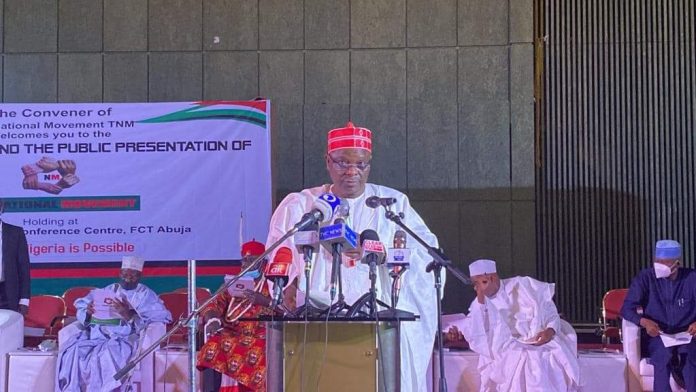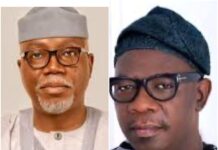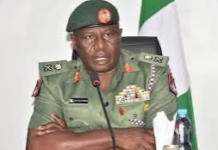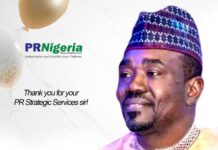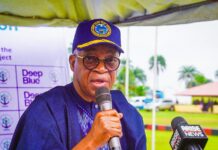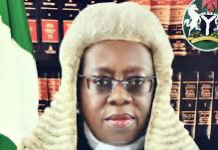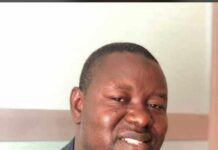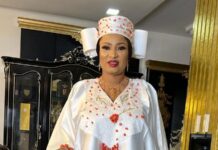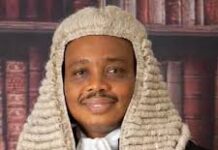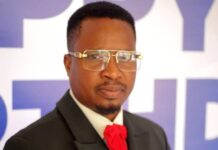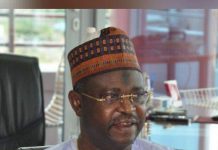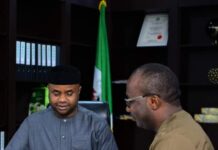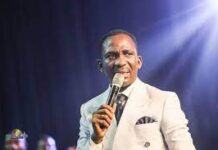2023 Elections: Nigeria and the Third Force Fallacy
By Abdulhaleem Ishaq Ringim,
There is stark inconsistency between the kind of constitutional prescription spelt out for Nigeria by her constitution and what is practically obtainable as it regards party systems. While the prescription clearly favors a robust multi-party system, the reality since the return of democracy in 1999 is defined by a political formation characterized by the dominance of just one or two parties, or at most three.
From 1999 to 2014, the People’s Democratic Party, PDP, established and retained political dominance by tightly gripping the presidency, majority of state governorships and both national and state assembly seats for 16 uninterrupted years. Apart from the PDP, one would find out by assessing the percentages of the votes cast for every other party that only one party(the major opposition party) is able to get more than 10% of the votes at a time in all the elections held within that period. The rest always come below 10%.
In 1999 it was AD(AD-APP) with 37.2% against 62.8% for the PDP; ANPP in 2003 and 2007 with 32.2% and 18.7% respectively against 61.9% and 69.6%; and CPC in 2011 with 32% against 58.9% for the PDP. The PDP maintained this dominance until it was ousted by the APC in 2015.
APC is a product of a merger of the political parties that had over the years served as major opposition parties(i.e ANPP and CPC) with 2 additional parties that had regional influences(ACN and a section of APGA). And it wasn’t until after the success of this merger that the PDP was outvoted for the first time where it got 45.5% of the votes against 54.6% for the APC.
Hence, 2015 marked a tipping point for the PDP and the inception of a new era in Nigeria’s politics characterized by the absolute political dominance of only 2 parties who jointly control more than 95% of the total voters in Nigeria. No other party was able to get more than 0.5% of the total votes cast ever since.
This trend clearly signifies the fact that there’s currently an APC/PDP hegemony in Nigeria and as far as these 2 parties remain intact without disintegration, no other merger or coalition or third force movement stand a chance against them not to even talk of winning the presidency.
The trend also establishes that popular support does not win elections for any individual no matter how popular he is. Buhari is a clear case study having been unable to win the presidential elections even after always commanding more than 12 million votes in all the elections he contested except in 2007 where he got 6 million votes.
To win the presidential elections in Nigeria, one needs more than popular support , regional consensus or elite consensus in one’s favor or even the most strongest financial resource base; one certainly needs the instrumentality of a strong political party that has established national influence with huge transnational penetration and a very deep nationwide grassroots control.
Read Also:
The situation this country has found itself today is suggestive of the fact that the APC has also failed in fulfilling their most important promises ranging from tackling insecurity to improving the economy and curbing corruption. This has triggered hope and optimism in the minds of some political actors who believe in the possibility of the emergence of a third force that would be capable of challenging the status quo of the APC/PDP hegemony.
We have over the years seen a number of these third force movements, the most popular among them being the Coalition for Nigeria Movement, CNM conceived and championed by Former President Olusegun Obasanjo which was launched in 2018. Others include the Save Nigeria Group(SNG), Nigeria Intervention Movement(NIN), National Consultative Front(NCF), Rescue Nigeria Project(RCP) and a host of others including political parties like the Alliance for New Nigeria (ANN), African Action Congress (AAC), Young Progressives Party (YPP) etc.
Interestingly, The National Movement(TNM) convened by Senator Rabiu Musa Kwankwaso is the newest addition to the fold. The unveiling of the movement has reignited debates on the possibility of having a successful third force. Recent history however, suggests otherwise.
Obasanjo’s CNM for example, which is the most similar, in terms of conception and intent, to Kwankwaso’s TNM was only able to get 0.36% of the total registered votes representing 97,874 votes after collapsing into the Action Democratic Congress to contest for the presidency in the 2019 elections. People might want to believe Kwankwaso is different from Obasanjo because he currently leads a massive crowd of political ideologues under the aegis of the Kwankwasiyya movement.
However, trends from the 2019 presidential elections from Kano(Kwankwaso’s stronghold) is suggestive of the fact that the Kwankwasiyya movement lacks overwhelming voting power and do not have the capability of delivering bloc votes as PDP only polled 391,593 which was drawn from the joint efforts of the Kwankwasiyya movement and other PDP adherents in the state, as against APC’s 1.4 Million votes
Moreover, none among the other founding members of the TNM equals 50% of Kwankwaso’s political capital. And their presence in the movement is perceived by many to be absolutely counterproductive owing to the fact that most of them were all forces to reckon with in their former parties(mostly PDP and APC or it’s founding parties). Some are former governors with little or no tangible achievements to show and no single proof that suggests they espoused the ideals that is now being churned out as the founding ideals of the TNM brand.
How then do they want to displace the two parties that jointly hold control of more than 95% of Nigeria’s votes? Displacing them would mean acquiring at least 50% of their respective political capital and voter strength or completely absorbing one of them, which is basically impossible unless in case of absolute disintegration.
In Nigeria’s contemporary political context, the idea of the possibility of the emergence of a successful third force capable of checkmating PDP and APC at the presidential level is simply a fallacy. The APC/PDP hegemony is real and formidable. And unfortunately, the formation of APC in 2014 has greatly stalled chances for the emergence of any other strong coalition or third force movement for now, except of course in an event where APC(or PDP) loses a significant percentage of its political value, or completely disintegrate.
Abdulhaleem Ishaq Ringim, a political/public affairs analyst and winner of YouthDigest’s Campus Journalist of the Year Award 2021 writes from Zaria and can be reached via

